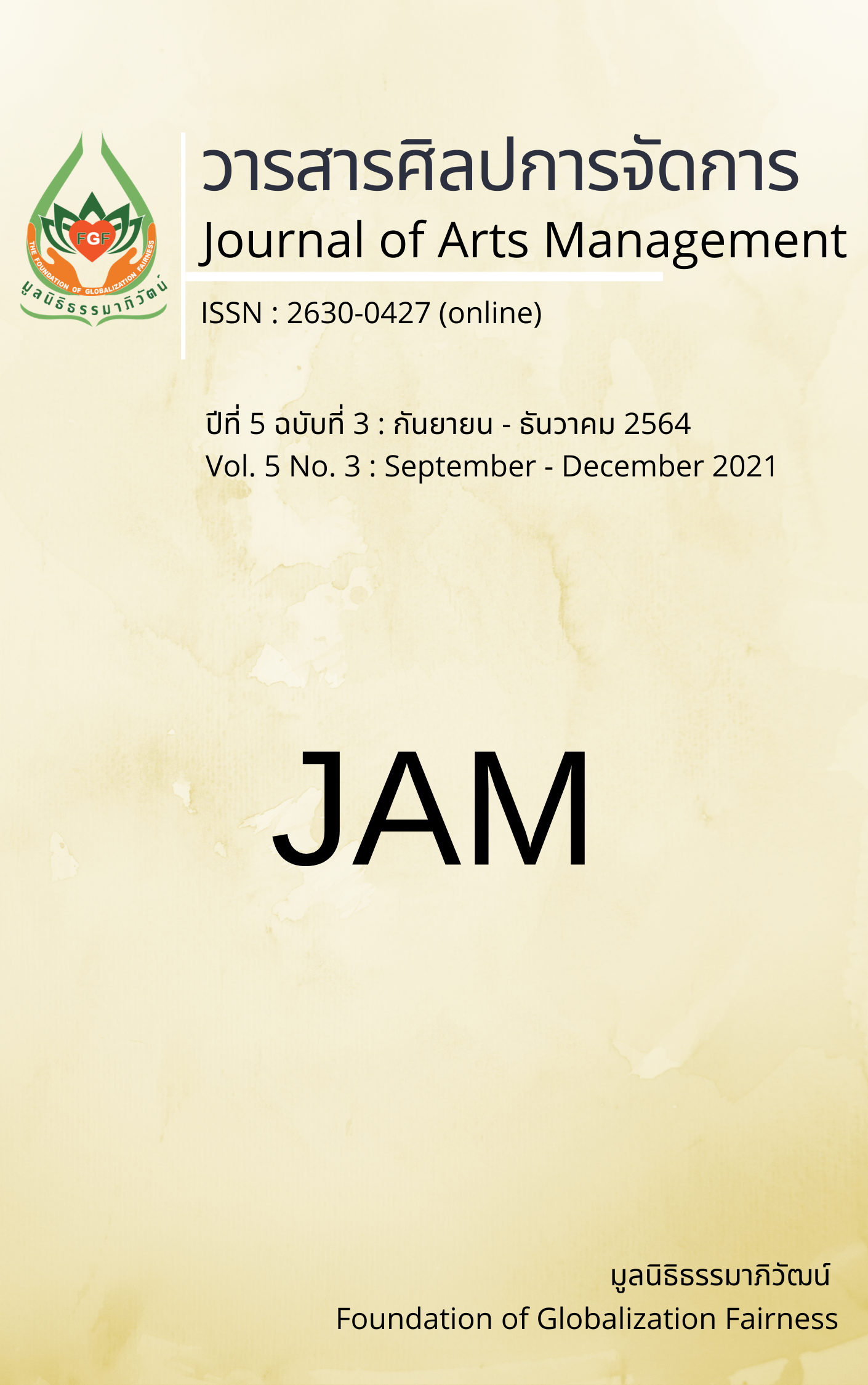Model of Digital Characteristics Development for Secondary School Administrators under the Office of the Basic Education Commission
Main Article Content
Abstract
The purposes of this article were to present research findings on (1) analysis of the elements of digital characteristics; (2) analysis of factors affecting digital characteristics; and (3) propose guidelines for developing digital characteristics for secondary school administrators under the Office of the Basic Education Commission. This study was a mixed research, both qualitative and quantitative research. The sample group consisted of 338 secondary school administrators under the Office of the Basic Education Commission. The sample was selected using cluster sampling, and there were 11 key informants. The sample was selected using purposive sampling. A questionnaire form and focus group were used. Quantitative data was analyzed using both descriptive statistics and inferential statistics, including structural equation analysis. Qualitative data were analyzed using descriptive analysis. The research results were found as follows:
1) There were 4 elements in the digital characteristics comprised of digital literacy which value of loading factor was 0.70, digital skills with the value of loading factor at 0.67, digital mindset with the value of loading factor at 0.68, and digital leadership with the value of loading factor at 0.82.
2) There were 3 factors affecting digital characteristics comprised of social context, organizational culture, and change management.
3) The guidelines for developing digital characteristics can operate through four methods as follows: job training, learning and practice from case studies, exchange and learning, and using tools of management.
Article Details
Views and opinions appearing in articles in the Journal of Arts of Management It is the responsibility of the author of the article. and does not constitute the view and responsibility of the editorial team I agree that the article is copyright of the Arts and Management Journal.
References
Ahmed, M., & Shafiq, S. (2014). The impact of organizational culture on organization performance: A case study of telecom sector. Global Journal of Management and Business Research, 14(3), 21-30.
Anantaworasakul, A. (2020, October 5). The world changed because of COVID-19. What Would the Education Be In the Future?. https://www.aksorn.com/learningviaonline.
Bunkrong, D. (2018). Analysis of the education management approach with driving education to Thailand 4.0. Asian Journal of Arts and Culture, 17(2), 1-25.
Bureau of Policy and Planning under Office of the Basic Education Commission. (2020). Personnel summary. https://sesa.obec.go.th/report/
Chaemmchoy, S. (2019). School management in Digital era. Chulalongkorn University printing house.
Desimone, R. L., Werner, J. M., & Harris, D. M. (2002). Human resource development. Harcourt College Publishers.
DoDEA. (2014, July 1). Self-assessment and reflection continuum. https://content.dodea.edu/teach_learn/ professional_development/21/docs/principals/self_assessment/self_assessment_continuum_all.pdf
Hoechsmann, M., & DeWaard, H. (2015). Mapping digital literacy policy and practice in the Canadian Education Landscape. Media Smart. https://mediasmarts.ca/sites/mediasmarts/files/publication-report/full/mapping-digital-literacy.pdf
Intaramanee, S. (2019). School management in Digital era. UMT Poly Journal, 16(1), 353 – 359.
Kline, R. B. (2016). Principles and Practice of Structural Equation Modeling (4th ed.). The Guilford Press.
Kongpetdit, D. (2016). Change management: Role of leadership and organizational communication. Veridian E-Journal, Silpakorn University (Humanities, Social Sciences and Arts), 9(1), 895 – 914.
Mondy, R. W., Noe, R. M., & Premeaux, S. R. (1999). Human resource management. Prentice Hall.
Nakhon Pathom Primary Educational Service Area Office 1. (2018, October 1). Teacher and Educational Human Resource Development Plan 2019. http://www.nptedu.go.th/data_ita/O26/6.pdf
National Statistical Office. (2019). The Use of Information and Communication Technology in the Household 2018 (Quarter 4). http://www.nso.go.th/sites/2014/DocLib13/ด้านICT/เทคโนโลยีในครัวเรือน/2561/ict61-CompleteReport-Q4.pdf.
Prajan, O. (2018). Administrative model for development teacher’s innovative thinking skills in the Basic Education School. FEU Academic Review Journal, 12(1), 156 – 167.
Ratanit, S. (2011). Theory and practice of educational administration. Khaofang publishing.
Ribble, M. (2011). Digital citizenship in schools. https://www.iste.org/docs/excerpts/DIGCI2-excerpt.pdf
Ritjaroon, P. (2011). A research and development of the teachers and educational personnel development policy. Educational Administration Burapha University, 6(1), 117-128.
Royal Thai Government Gazette. (2018, October 13). National Strategy (2018 - 2037). 135 (82 A), 1-71. Cabinet and Royal Gazette.
Rukponmongkol, P. (2015). Development guidelines leadership of the school administrators in the development of schools as learning organizations. Lampang Rajabhat University Journal, 4(1), 143-160.
Satitpattana school. (2020). Secondary. https://satitpattana.ac.th/web/secondary1.php
Schrum, L. R., Levin, Barbara B. (2015). Leading 21st century schools: Harnessing technology for engagement and achievement (2nd ed.). Corwin Press.
Schumacker, R. E., & Lomax, R. G. (2015). A beginner’s guide to structural equation modeling. (4th ed.). Routledge.
Siripala, W. (2016). The Rajabhat model of teacher’s professional development[Doctoral dissertation, Siam University].
Thamsatitdej, P. (2019). The transformation of education in Digital era. Office of the Education Council.
Wongruethaiwattana, M. (2019). A small school administration model of Digital era to excellence under Chai Nat Primary Educational Service Area Office. VRU Research and Development Journal Humanities and Social Science, 14(1), 22 – 30.
Wongyai, W. (2019). Learning and instruction in disruptive innovation. http://www.curriculumandlearning.com/ upload/Books/Disruptive%20Innovation_1544646601.pdf


